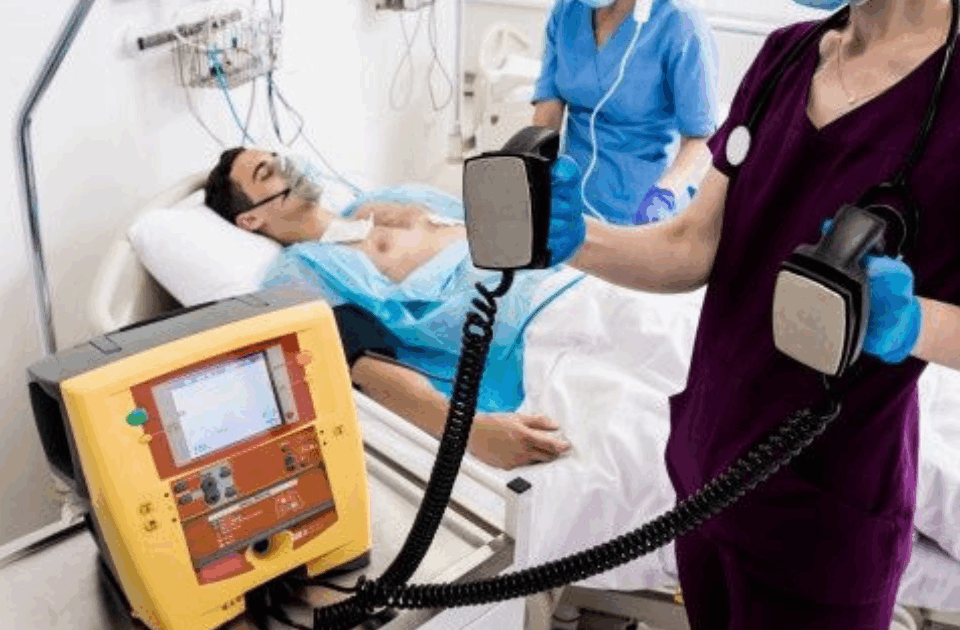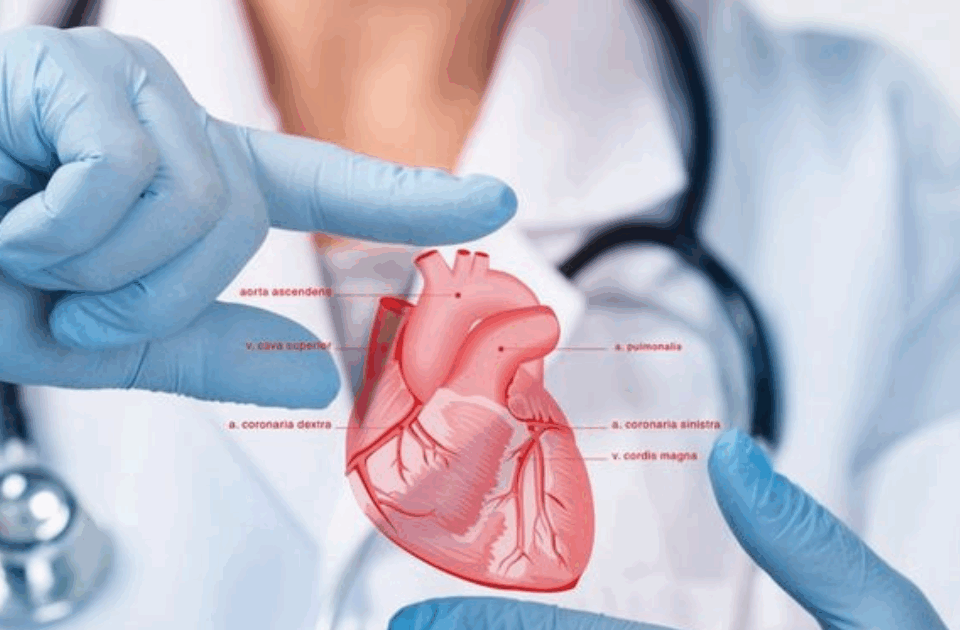
Top Tips for Preventing Heart Disease: Insights from Novocare’s Cardiologists
September 12, 2025
How to Prepare for a Heart Procedure at Novocare Hospital
September 12, 2025Introduction
Cardiovascular disease is a leading cause of death worldwide, yet it is often preventable with early detection and timely intervention. Regular heart check-ups play a pivotal role in identifying risk factors, diagnosing conditions early, and guiding lifestyle and medical interventions.
Novocare Hospital provides comprehensive cardiology services designed to monitor, prevent, and treat heart disease. With advanced diagnostic tools, expert cardiologists, and patient-focused care, Novocare ensures individuals receive proactive and personalized cardiac care.
This guide outlines the importance of routine heart check-ups, the services offered by Novocare, and practical tips for maintaining optimal heart health.
Why Regular Heart Check-ups Matter
Heart disease often develops silently, with symptoms appearing only after significant damage has occurred. Regular check-ups enable:
- Early detection of high blood pressure, high cholesterol, and diabetes
- Identification of structural or electrical heart issues
- Timely intervention through medications, lifestyle modifications, or procedures
- Continuous monitoring for individuals with existing cardiac conditions
Novocare Insight: Patients who undergo regular evaluations have significantly reduced risks of heart attacks, strokes, and heart failure.
Components of a Comprehensive Heart Check-up at Novocare
1. Medical History and Risk Assessment
- Review of personal and family history
- Assessment of lifestyle habits (diet, exercise, smoking, alcohol)
- Identification of risk factors including obesity, stress, and chronic diseases
2. Physical Examination
- Measurement of blood pressure and heart rate
- Evaluation of weight, BMI, and waist circumference
- Cardiac auscultation to detect abnormal heart sounds
3. Blood Tests and Laboratory Assessments
| Test | Purpose |
|---|---|
| Lipid Profile | Measures cholesterol and triglyceride levels |
| Blood Glucose & HbA1c | Screens for diabetes and prediabetes |
| Kidney & Liver Function Tests | Ensures medication safety and overall health |
| Complete Blood Count (CBC) | Detects anemia and infections |
4. Diagnostic Imaging
- Electrocardiogram (ECG): Assesses electrical activity of the heart
- Echocardiography: Evaluates heart structure and valve function
- Stress Test / Treadmill Test: Measures heart performance under exertion
- Coronary Angiography: Detects blockages or narrowing in coronary arteries
Novocare Insight: Advanced imaging ensures accurate diagnosis, even in asymptomatic patients.
5. Specialized Cardiology Consultations
- Preventive Cardiology: Personalized advice on lifestyle and medication
- Interventional Cardiology: For patients needing procedures like angioplasty
- Electrophysiology: For managing arrhythmias and other rhythm disorders
Benefits of Routine Heart Check-ups
| Benefit | Explanation |
|---|---|
| Early Detection | Identifies issues before symptoms appear |
| Personalized Treatment | Tailored medications and lifestyle plans |
| Risk Factor Management | Controls blood pressure, cholesterol, and diabetes |
| Prevention of Serious Complications | Reduces risk of heart attacks, stroke, and heart failure |
| Peace of Mind | Regular monitoring ensures proactive care |
Lifestyle Recommendations for Heart Health
Regular check-ups work best when combined with heart-healthy lifestyle choices. Novocare cardiologists recommend:
1. Balanced Diet
- Include fruits, vegetables, whole grains, and lean protein
- Limit saturated fats, trans fats, sugar, and salt
2. Physical Activity
- At least 150 minutes of moderate aerobic exercise per week
- Strength training 2–3 times per week
3. Stress Management
- Mindfulness, meditation, yoga, or counseling
- Avoid chronic stress which elevates blood pressure
4. Avoid Smoking and Limit Alcohol
- Quitting smoking reduces cardiovascular risk significantly
- Moderate alcohol intake (≤1 drink/day for women, ≤2 for men)
5. Adequate Sleep
- Aim for 7–9 hours per night to regulate blood pressure and reduce inflammation
Preventive Cardiology Programs at Novocare
Novocare Hospital offers structured preventive cardiology programs including:
| Program | Details |
|---|---|
| Cardiac Risk Assessment | Personalized evaluation of heart disease risk |
| Lifestyle Modification Counseling | Nutrition, exercise, and stress management plans |
| Regular Diagnostic Monitoring | ECG, echocardiography, blood tests, and imaging |
| Medication Management | Prescription oversight for blood pressure, cholesterol, and diabetes |
| Rehabilitation and Follow-up | Ongoing monitoring for recovery and health maintenance |
Novocare Insight: These programs empower patients to actively manage their heart health and reduce long-term complications.
Who Should Get Regular Heart Check-ups?
- Adults over the age of 40 or earlier if risk factors exist
- Individuals with family history of heart disease
- Patients with diabetes, hypertension, or high cholesterol
- Smokers or individuals with unhealthy lifestyle habits
- Patients recovering from a heart condition or surgery
Signs That Require Immediate Cardiology Evaluation
| Symptom | Possible Concern |
|---|---|
| Chest pain or pressure | Angina or heart attack |
| Shortness of breath | Heart failure or coronary artery disease |
| Irregular heartbeat | Arrhythmia or other electrical heart disorders |
| Dizziness or fainting | Low blood pressure or arrhythmia |
| Swelling in legs or feet | Heart failure or venous issues |
Novocare Insight: Early evaluation of these symptoms can prevent severe cardiac events.
FAQs: Heart Check-ups at Novocare
1. How often should I get a heart check-up?
Adults with no risk factors should get evaluated every 1–2 years. High-risk patients may require annual or semi-annual check-ups.
2. What is included in a basic heart check-up?
Medical history, physical exam, blood tests, ECG, and echocardiography. Additional tests may be recommended based on risk.
3. Is heart check-up painful?
No, most tests are non-invasive and painless. Procedures like angiography are minimally invasive.
4. How long does a comprehensive check-up take?
Typically 2–4 hours, depending on the number of tests.
5. Can heart disease be prevented entirely?
While genetics play a role, lifestyle changes and regular monitoring significantly reduce risk.
6. Are check-ups covered by insurance?
Most insurance plans cover preventive cardiac evaluations. Novocare provides guidance on claims.
7. Should young adults get check-ups too?
Yes, especially if there’s a family history of heart disease or risk factors present.
8. Can lifestyle changes reverse early heart disease?
Yes, combined with medications and monitoring, lifestyle improvements can slow or reverse progression.
9. How soon will I know my results?
Basic tests are available the same day; advanced imaging or lab results may take a few days.
10. Are there specialized programs for high-risk patients?
Yes, Novocare offers personalized preventive cardiology programs.
11. Can women benefit from regular check-ups?
Absolutely; women may have different symptoms and risk factors that need early detection.
12. What are the latest technologies used in check-ups?
Advanced ECG, echocardiography, stress testing, and coronary imaging tools.
13. Is fasting required for blood tests?
Some tests like lipid profile or blood sugar require fasting; your physician will advise.
14. How can I track my heart health at home?
Use home blood pressure monitors, track cholesterol/glucose levels, maintain exercise logs.
15. How do I schedule a heart check-up at Novocare?
Appointments can be booked online, via phone, or through physician referral.
Expert Conclusion from Novocare Cardiologists
Regular heart check-ups are essential for preventing cardiovascular disease. Novocare Hospital offers a full spectrum of cardiology services, combining advanced diagnostic tools, personalized care, and preventive programs.
By integrating routine evaluations with healthy lifestyle choices, stress management, and medical oversight, patients can maintain optimal heart health and reduce the risk of serious cardiac events.
Choosing Novocare ensures expert guidance, state-of-the-art facilities, and comprehensive support throughout the journey to a healthier heart.




